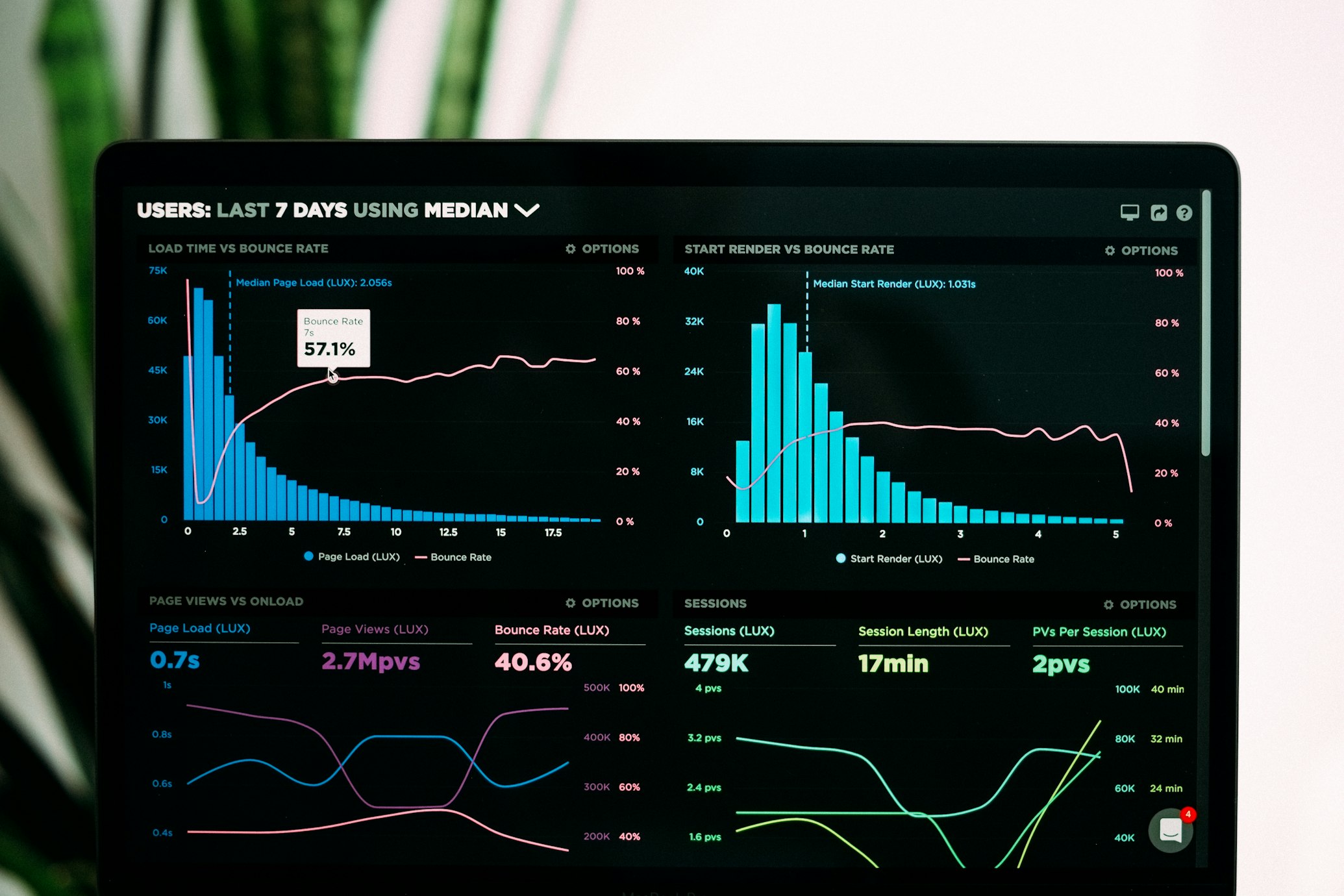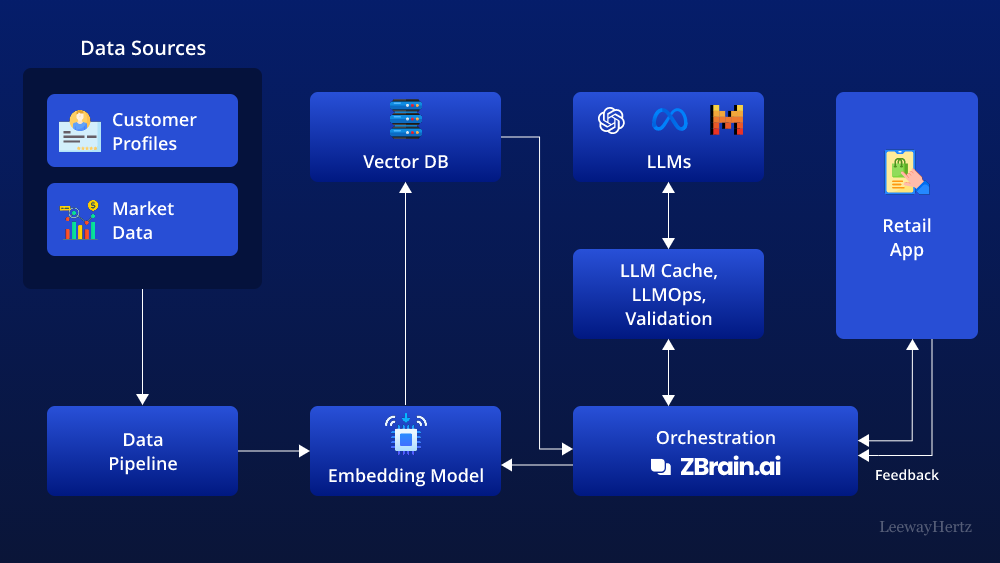- October 13, 2025
- Blog & Newsletters
- Comments : 0
The Hyper-Personalization Engine: How Central India’s D2C Startups Are Using AI to Win Customers for Life
In the bustling digital marketplace of India, the roar of competition is deafening. For Direct-to-Consumer (D2C) brands, especially those emerging from the vibrant hubs of Central India like Indore and Bhopal, the challenge is not just to be seen, but to be remembered. The era of one-size-fits-all marketing is over. Today’s customer doesn’t just want a product; they crave an experience tailored specifically to them. This is where the game changes. Enter the age of Hyper-Personalization for D2C, a strategy powered by Artificial Intelligence that is enabling nimble startups to build deep, lasting relationships with their customers, turning one-time buyers into lifelong advocates. This isn’t just a trend; it’s a fundamental shift in commerce, and Central India’s entrepreneurs are uniquely positioned to lead the charge.

What’s Happening: The Data-Driven D2C Revolution
The Indian D2C market is on a meteoric rise, projected to become a $100 billion market by 2025. This explosive growth is fueled by increasing internet penetration and a digitally native consumer base that expects more. They are no longer passive recipients of advertising; they are active participants in a brand’s story. Studies show that this new consumer is significantly more likely to purchase from brands that offer personalized experiences. According to a report by Epsilon, 80% of consumers are more likely to do business with a company that offers personalized experiences.
This is where AI transitions from a buzzword to a business-critical tool. AI and machine learning algorithms are now accessible enough for startups to analyze vast datasets in real-time. They can track browsing behavior, purchase history, social media interactions, and even regional trends to create a 360-degree view of the customer. This allows them to predict future behavior, recommend relevant products, and communicate with a level of personal relevance that was once the exclusive domain of e-commerce giants. From AI-powered chatbots providing instant support in vernacular languages to dynamic pricing models that adjust to demand, technology is leveling the playing field.
Why It Matters: The ROI of Knowing Your Customer
For founders, investors, and mentors in the startup ecosystem, the implications of hyper-personalization are profound. It directly impacts the most critical metrics of a D2C business: Customer Acquisition Cost (CAC) and Lifetime Value (LTV).
- For Founders: In a world of rising ad costs, acquiring new customers is increasingly expensive. Hyper-personalization flips the script. By delivering relevant content and offers, brands can significantly increase conversion rates, thereby lowering CAC. More importantly, a personalized experience fosters loyalty. A customer who feels understood is more likely to make repeat purchases, dramatically increasing their LTV. This creates a more sustainable and profitable business model.
- For Investors: Savvy investors look for startups with strong unit economics and a clear competitive advantage. A D2C brand that has mastered hyper-personalization can demonstrate higher engagement rates, better customer retention, and a healthier LTV/CAC ratio. This is a powerful signal of a scalable and defensible business, making it a far more attractive investment.
- For Mentors: Guiding startups to focus on building genuine customer relationships is a core tenet of mentorship. Mentors associated with organizations like TiE Indore can advise founders to move beyond generic growth hacks and invest in a robust data infrastructure. The true moat for a D2C brand is not just its product, but the community and loyalty it builds through deep customer understanding.

How Startups Can Respond: An Actionable Framework
Adopting a hyper-personalization strategy doesn’t require a billion-dollar budget. With the democratization of AI tools, startups in Central India can take concrete steps to build a more customer-centric business. The focus should be on collecting and activating first-party data ethically and effectively.
Here is a structured framework for implementation:
| Stage | Objective | Key AI Tools & Tactics | Core KPI |
|---|---|---|---|
| 1. Data Unification | Create a single, comprehensive view of each customer. | Customer Data Platforms (CDPs), CRM Integration, Website & App Analytics. | % of Customer Profiles Unified |
| 2. Insight Generation | Understand customer segments and predict future behavior. | Predictive Analytics Models, RFM (Recency, Frequency, Monetary) Analysis, Sentiment Analysis on Social Media. | Customer LTV |
| 3. Personalized Activation | Deliver tailored experiences across all touchpoints. | AI-powered Recommendation Engines, Dynamic Website Content, Personalized Email/WhatsApp Campaigns, AR Virtual Try-ons. | Conversion Rate |
| 4. Optimization & Learning | Continuously improve personalization efforts through feedback. | A/B Testing with AI-driven variations, Automated Feedback Collection, Chatbot Interaction Analysis. | Customer Retention Rate |
Startups can begin by leveraging affordable and powerful platforms like Shopify’s ecosystem of apps, Klaviyo for email marketing, or developing custom chatbots. The key is to start small, focus on high-impact areas like reducing cart abandonment, and scale the strategy as the business grows.
The Local Lens: Central India’s D2C Advantage
Central India, with Indore as its logistical and commercial hub, is not just participating in the D2C revolution; it’s poised to lead it. The region offers a unique blend of strategic advantages. Indore’s prime location reduces shipping times and costs nationwide, a critical factor for D2C success. The development along the Super Corridor and the presence of world-class infrastructure at the MPSEDC IT Park and Crystal IT Park provide the backbone for tech-driven operations.
The talent pipeline is equally robust. Premier institutions like IIM Indore and IIT Indore are producing a new generation of business leaders and data scientists. This local talent pool is crucial for building the teams needed to execute sophisticated AI strategies. Furthermore, the ecosystem is maturing rapidly. Incubators like AIC-PRESTIGE and Indore Smart Seed, along with co-working spaces like Workie, are creating a fertile ground for innovation. We are seeing a new wave of Indore D2C startups emerge, not just in traditional sectors but in niche categories, leveraging the region’s strengths.
“ग्राहक ही भगवान है, और आज का भगवान अपनी पसंद की पूजा चाहता है।” (The customer is God, and today’s God wants personalized worship.) This simple truth is the key to unlocking the D2C market in the heart of India.
From Bhopal’s burgeoning tech scene to Gwalior’s manufacturing base, the entire state is contributing to this new economic engine. The Madhya Pradesh government’s supportive startup policy, which aims to grow the number of recognized startups from over 5,000 to 10,000, provides further impetus. This is where organizations like TiE Indore play a pivotal role, connecting these ambitious founders with the mentorship, network, and funding needed to scale their vision.

Takeaways: The TiE Mentoring Perspective
For entrepreneurs in the TiE network, the message is clear: data is your most valuable asset. The path to building a successful D2C brand in 2025 and beyond is paved with personalized customer experiences. Here are three practical actions to take now:
- Audit Your Data Stack: Before you can personalize, you need clean, accessible data. Evaluate your current tools. Are you effectively capturing customer interactions on your website, social media, and customer service channels? Start with a simple goal: unify your data to eliminate silos.
- Embrace Experimentation: Don’t wait for the perfect, all-encompassing AI solution. Start with one use case. Implement an AI-powered product recommendation tool on your website or launch a personalized email campaign to a small segment of your customers. Measure the results, learn, and iterate.
- Seek Mentorship and Network: You don’t have to build this alone. Connect with mentors and peers through TiE Indore’s programs who have experience in data analytics and D2C scaling. Learn from their successes and failures. The collective wisdom of the network is a powerful accelerator.
Conclusion: From Central India to the Global Stage
The shift towards hyper-personalization is more than a marketing tactic; it’s a fundamental reorientation of business around the customer. It’s about using technology not to replace the human touch, but to enhance it at scale. For the ambitious founders across Madhya Pradesh, this presents an unprecedented opportunity. By harnessing the power of AI, they can build brands that are not just transactional, but deeply relational. They can compete with and even outperform larger, legacy players by being smarter, faster, and more attuned to their customers’ needs.
The D2C revolution is here, and its engine is personalization. As the ecosystem in Indore, Bhopal, Jabalpur, and Gwalior continues to mature, supported by strong infrastructure, top-tier talent, and a collaborative community like TiE, the next great Indian D2C success story is waiting to be written—right here, in the heart of the country.




